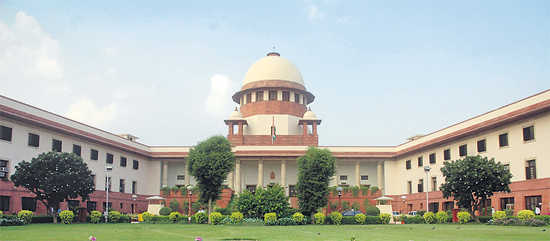
Satya Prakash
The UK Supreme Court’s decision quashing the advice given by Prime Minister Boris Johnson to Her Majesty the Queen to prorogue Parliament for a particular period has been used by many commentators to deride the Indian Supreme Court, questioning its authority and wisdom for delay in adjudication of important cases. There have been articles in the media advising the Indian SC to learn a few lessons from its British counterpart on speedy disposal of cases involving constitutional issues.
The criticism is highly misplaced as it ignores the stark realities that confront the Indian SC. Between April 1, 2016, and March 31, 2017, the UK Supreme Court heard only 92 cases, while the US Supreme Court takes up only about 70 cases a year. This is in sharp contrast to 700 cases a day the Indian SC hears.
Not many in India know that the UK Supreme Court is barely a decade-old institution established only in 2009 to achieve the complete separation of the country’s senior judges from the upper House of Parliament. The move underlined the independence of the then Law Lords (now UKSC Justices) and increasing transparency at the top of the judicial system. The Indian Supreme Court is almost 70-year-old institution whose judicial precedents have guided judges in many foreign jurisdictions.
The UK Supreme Court replaced the Appellate Committee of the House of Lords as the highest court in October 2009. It hears appeals on arguable points of law of the greatest public importance for the whole of the UK in civil cases, and for England, Wales and Northern Ireland in criminal cases. It also hears cases on devolution matters under the Scotland Act 1998, the Northern Ireland Act, 1998, and the Government of Wales Act, 2006. This jurisdiction was transferred to the UK Supreme Court from the Judicial Committee of the Privy Council.
There is something called Permission to Appeal (PTA) in the UK to approach the top court. An appellant requires permission to appeal before he/she can bring a case to the UK Supreme Court. The court appealed from may grant permission, but where that court refuses permission, the appellant can apply to the UK Supreme Court which has to first grant or reject PTA without an oral hearing. During 2017-18, 59 such PTAs were filed and 55 were granted. Even in the US, the SC decides to agree or disagree to take up a case for hearing.
But unlike their British or American counterparts, Indian SC Judges don’t have the luxury of agreeing to hear a limited number of cases. This is primarily because of the fact that the Indian Supreme Court’s jurisdiction is much wider than that of any other Supreme Court in the world.
The SC of India has original jurisdiction in disputes between the Union and the states, between the states inter se and original jurisdiction under Article 32 of the Constitution for the protection of fundamental rights. It’s the highest court of civil and criminal appeal and has overriding powers to grant special leave to appeal from any judgment, decree, determination, sentence or order in any cause or matter passed or made by any court or tribunal in India.
As a result, the SC ends up dealing with issues ranging from divorce, maintenance and child custody to frivolous PILs. Thanks to judicial activism, it has expanded its jurisdiction on issues that should generally be handled by the executive at the first instance.
There are three findings of the UK Supreme Court in this case. First, it ruled that the Prime Minister’s advice to Her Majesty is justiciable. Second, it used the age-old principles of Parliamentary sovereignty — that Parliament can make laws which everyone must obey; and Parliamentary accountability — that the Cabinet is collectively accountable to Parliament to declare PM Johnson’s advice illegal.
The UK SC concluded that the decision prevented Parliament from carrying out its constitutional role for five out of the possible eight weeks between the end of the summer recess and exit day on October 31.
But the UK Supreme Court — which received accolades from certain quarters in India for reversing Prime Minister Johnson – is one of the weakest Supreme Court in the world in terms of its power of judicial review. Unlike the Indian or the US Supreme Courts, the UK Supreme Court does not have the power to “strike down” legislation passed by the UK Parliament. The UK Supreme Court’s role is to interpret the law and develop it where necessary, rather than formulate public policy — something the Indian Supreme Court often does.
One can understand the anxiety in certain quarters over some issues involving political questions — be it dilution of Article 370 and bifurcation of the state of Jammu and Kashmir into two union territories — it’s unfair to belittle the Indian Supreme Court. The Supreme Court did take up the petitions almost immediately and issued necessary directions. And now, a five-judge Constitution Bench is scheduled to commence hearing on petitions against change in constitutional status of the state from October 1.



























